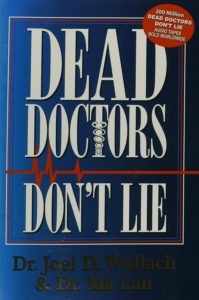Alzheimer’s Research Provides New Information Every Day
There are actually entire organizations dedicated to Alzheimer’s research. Some are medical organizations searching for treatments and cures, while others work on the political aspect of getting increased funding for that research. Some even sponsor conferences that bring together doctors and scientists in the field of Alzheimer’s research from all around the world. And there are some organizations that accomplish all of these, with great benefit to the patients and their caregivers.
Medicines for Alzheimer’s
Alzheimer’s research has yielded two types of medicines that treat the cognitive symptoms of the disease. Since the disease itself affects the chemicals and nerve endings in the brain, these medicines address those two
Cholinesterase and memantine are both inhibitors that prevent the breakdown of acetylcholine, a chemical messenger in the brain that’s important for learning and memory. Both are appropriate for mild to moderate Alzheimer’s. Research shows that they do not cure the disease, but both offset the progression of its symptoms for some time.
Treating the Behavioral Disorders
Alzheimer’s disease affects more than just memory. Many patients experience behavior symptoms as well, including paranoia, irritability, anger, outbursts, restlessness, and delusions. Alzheimer’s research has shown that some medications can be prescribed to help control these side effects of the disease. However, if you would like to try a non-medical approach, there are things that one can do. Understanding that their behavior problems are simply part of the disease helps the caregivers to cope tremendously.
The So-Called Alzheimer’s Gene
Some Alzheimer’s researchers believe that they have pinpointed a certain gene that causes or contributes to the disease. However, there is still much work to be done in this area. Data shows that those with the gene do not necessarily get the disease, and those without it still can contract it. There is much controversy over the tests for this gene as they can be very misleading.
These organizations dedicated to Alzheimer’s research have done much good toward the treatment of the disease and the help needed for the caregivers. While doctors are still a long way off from finding a permanent cure, they are able to do quite a bit in helping to delay the progression of the disease in the meantime. And as long as they are able to continue funding Alzheimer’s research, there is always hope that one day this disease will be thing of the past.
 “Now the best way to avoid Alzheimer’s is to eat a couple of eggs every morning for breakfast, not cooked in margarine or fried, you want to consume as much as 72oz of red meat every single month.
“Now the best way to avoid Alzheimer’s is to eat a couple of eggs every morning for breakfast, not cooked in margarine or fried, you want to consume as much as 72oz of red meat every single month.
 I know that sounds like a lot, but it’s just a quarter-pounder a day, and you want to supplement with all 90 essential nutrients, and when you get to the Vitamin E level you want to have at least 2,000 international units of Vitamin E, and you want 500mcg of Selenium, and if you do that, even if you already have Alzheimer’s disease, you can honestly expect to have a significant amount of return of memory. Great studies done by University of California at San Diego and the Salk Institute that says by taking 2,000 icu of Vitamin E alone, even if you have advanced Alzheimer’s disease, you can get a significant amount of memory return.” (Dr. Joel Wallach, “A Healthier and Longer Life”)
I know that sounds like a lot, but it’s just a quarter-pounder a day, and you want to supplement with all 90 essential nutrients, and when you get to the Vitamin E level you want to have at least 2,000 international units of Vitamin E, and you want 500mcg of Selenium, and if you do that, even if you already have Alzheimer’s disease, you can honestly expect to have a significant amount of return of memory. Great studies done by University of California at San Diego and the Salk Institute that says by taking 2,000 icu of Vitamin E alone, even if you have advanced Alzheimer’s disease, you can get a significant amount of memory return.” (Dr. Joel Wallach, “A Healthier and Longer Life”)


